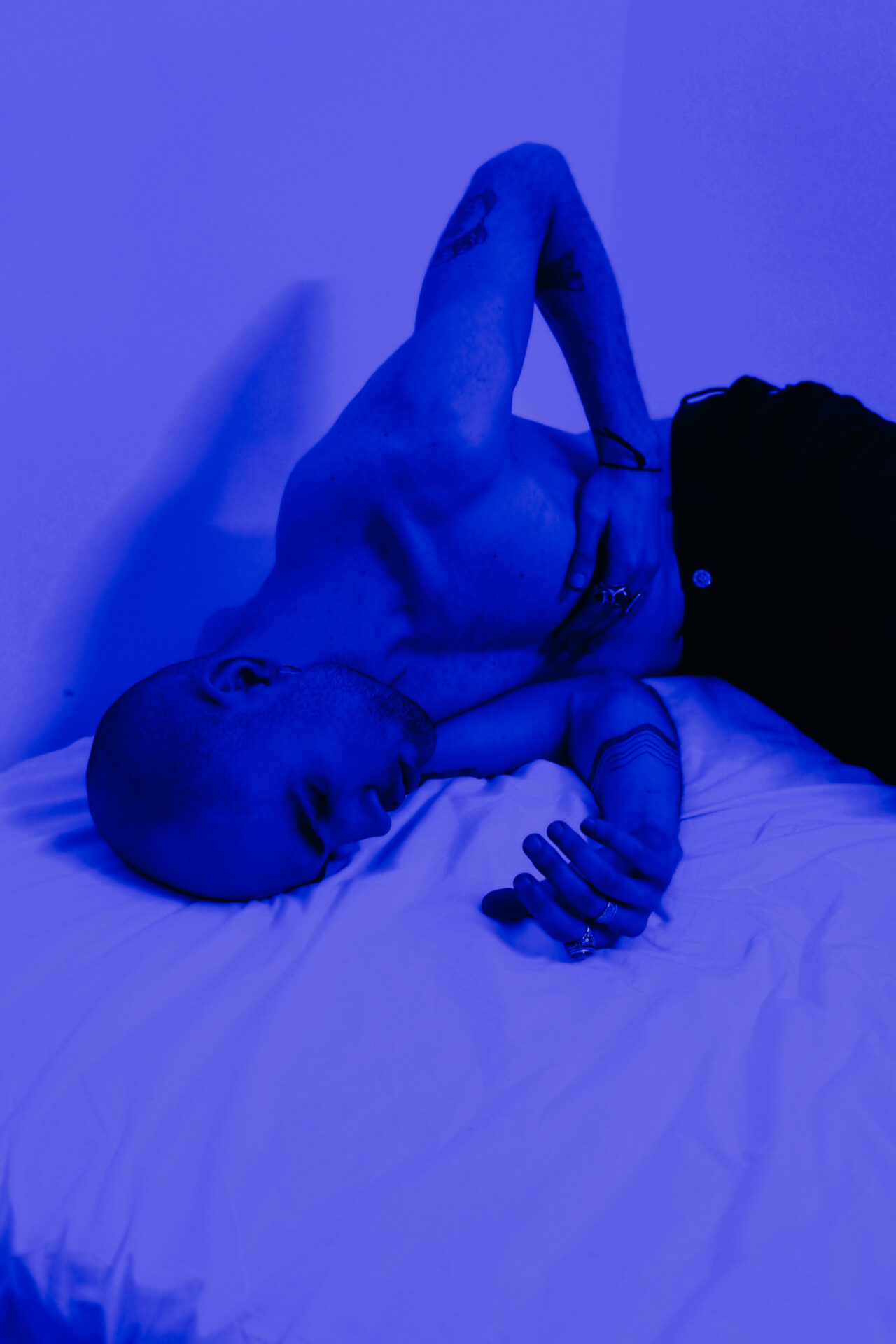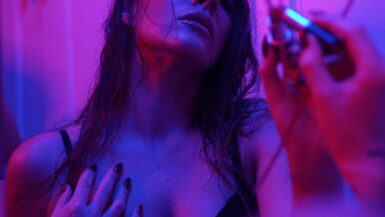In today’s digital age, the impact of blue light on sleep and productivity has become a topic of increasing interest and concern. With the widespread use of electronic devices such as smartphones, computers, and televisions, our exposure to blue light has significantly increased, potentially affecting our sleep patterns and overall productivity levels. This article explores the science behind blue light and its effects on our well-being, delving into the potential benefits of using blue light blocking glasses. By examining their effectiveness, we aim to provide you with valuable insights to help you make informed decisions about whether these glasses are worth integrating into your daily routine, ultimately improving your sleep quality and enhancing your productivity.
How Blue Light Blocking Glasses Function
In this section, we will delve into the inner workings of blue light blocking glasses to better understand their role in protecting our eyes from the potentially harmful effects of blue light. We will discuss the mechanism behind their effectiveness and explore the various types of blue light blocking glasses available in the market.
Blocking Blue Light: The Science Behind the Lenses
Blue light blocking glasses are specifically designed to filter out blue light emitted by electronic devices. These glasses are equipped with lenses that have a special coating that either absorbs or reflects blue light, thus reducing the amount that reaches our eyes. By limiting our exposure to blue light, these glasses aim to mitigate its negative effects on our sleep patterns and overall well-being. One such negative effect is mentioned in the article The Effect of Blue Light on Sleep and Weight Gain, which emphasizes the importance of reducing blue light exposure, especially in the evening.
Types of Blue Light Blocking Glasses
There are various types of blue light blocking glasses available in the market, each designed to cater to different needs and preferences. Here are some common types:
1. Amber-tinted lenses: These glasses have a yellow or orange tint which helps block blue light effectively. They are ideal for individuals who want to reduce their exposure to blue light during the evening and nighttime hours.
2. Clear lenses: For those who prefer a more subtle appearance, clear lenses with a blue light blocking coating are also available. While they may not be as effective as amber-tinted lenses, they still offer some protection against blue light.
3. Clip-ons: Clip-on blue light blocking lenses are a convenient option for individuals who already wear prescription glasses. They can easily be attached to existing frames, providing the benefits of blue light blocking without the need for a separate pair of glasses.
Are Blue Light Blocking Glasses Right for You?
Choosing whether or not to use blue light blocking glasses ultimately depends on your lifestyle and personal preferences. If you spend a significant amount of time using electronic devices, especially during the evening hours, these glasses may help improve your sleep quality and overall productivity. However, it is important to note that blue light blocking glasses are not a one-size-fits-all solution. It is essential to consider your individual needs and consult with an eye care professional before making a decision.
Benefits of Blue Light Glasses for Sleep and Productivity
In this section, we will delve into the numerous benefits associated with using blue light blocking glasses, particularly how they can improve sleep and productivity. By understanding the various advantages, you can make an informed decision about whether these glasses are a worthwhile investment for you.
Enhanced Sleep Quality: A Restful Night Awaits
One of the primary benefits of blue light blocking glasses is their ability to improve sleep quality. Blue light exposure, particularly in the evening, can disrupt our circadian rhythm, making it difficult to fall asleep and stay asleep. By filtering out blue light, these glasses can help regulate our internal clock, allowing us to maintain a regular sleep schedule. As a result, we can experience a deeper, more restful sleep, which is crucial to our overall health and well-being.
Increased Productivity: Unlocking Your Full Potential
A good night’s sleep is the foundation of a productive day. When we are well-rested, our cognitive abilities, including decision-making, problem-solving, and creativity, are significantly enhanced. By using blue light blocking glasses and improving our sleep quality, we can unlock our full potential in both our personal and professional lives. This increased productivity can lead to a better work-life balance and ultimately, a more fulfilling life.
Reduced Eye Strain: Comfort for Your Eyes
Extended exposure to blue light can cause digital eye strain, which can manifest as symptoms like dryness, irritation, and fatigue. Blue light blocking glasses can help alleviate these symptoms by reducing the amount of blue light that reaches our eyes. This can lead to increased comfort when using electronic devices, making it easier to focus on tasks and maintain productivity throughout the day.
Prevention of Sleep Disorders: A Proactive Approach
The long-term effects of blue light exposure can contribute to the development of sleep disorders such as insomnia. By incorporating blue light blocking glasses into your daily routine, you can proactively address this issue and potentially prevent the onset of sleep disorders. This healthy habit can have lasting benefits not only for your sleep quality but also for your overall mental and physical health.
By considering the numerous benefits of blue light blocking glasses, it becomes clear that their use can lead to significant improvements in sleep quality and productivity. Whether you’re a student, a professional, or simply someone looking to enhance their well-being, these glasses could be a valuable addition to your daily routine.
Understanding Blue Light and Its Effects on Sleep
Before diving into the effectiveness of blue light blocking glasses, it’s essential to comprehend the nature of blue light and how it influences our sleep patterns. In this section, we will explore the science behind blue light, its sources, and the ways it impacts our sleep and overall well-being. The knowledge gained in this section will provide you with a solid foundation for understanding the potential benefits of using blue light blocking glasses.
What is Blue Light and Where Does It Come From?
Blue light is a part of the visible light spectrum, with a wavelength of approximately 380 to 500 nanometers. It is emitted naturally by the sun, playing a crucial role in regulating our circadian rhythm – the body’s internal clock that governs our sleep-wake cycle. However, artificial sources of blue light, such as electronic devices like smartphones, computers, and televisions, have become increasingly prevalent in our daily lives. This exposure to blue light from artificial sources, especially during the evening hours, can disrupt our circadian rhythm and negatively affect our sleep quality.
The Impact of Blue Light Exposure on Sleep
Exposure to blue light, particularly in the hours leading up to bedtime, can suppress the production of melatonin, a hormone that signals our body to prepare for sleep. This suppression can lead to difficulty falling asleep, frequent awakenings during the night, and overall poor sleep quality. Additionally, disrupted sleep can contribute to a range of health issues, including reduced cognitive function, weakened immune system, and an increased risk of chronic conditions such as diabetes and heart disease.
Individual Differences in Blue Light Sensitivity
It is important to note that the effects of blue light on sleep can vary from person to person, depending on factors such as age, lifestyle, and individual sensitivity to blue light. For example, older adults may be more susceptible to the negative effects of blue light exposure due to a decrease in melatonin production that naturally occurs with age. Moreover, individuals who work night shifts or spend extended periods using electronic devices may also be at greater risk for sleep disruptions caused by blue light.
By familiarizing yourself with the nature of blue light and its impact on sleep, you can gain a better understanding of how blue light blocking glasses may help improve your sleep quality and overall well-being. With this knowledge, you can make an informed decision about whether these glasses are a worthwhile investment for you, taking into account your unique lifestyle and individual sensitivity to blue light exposure.
Choosing the Right Blue Light Blocking Glasses for You
Embarking on the journey of finding the perfect pair of blue light blocking glasses can be a daunting task, especially with the plethora of options available on the market. To help simplify this process, we have compiled a list of key factors to consider when selecting the ideal pair of glasses that cater to your unique needs and preferences.
Identifying Your Blue Light Exposure
Before diving into the world of blue light blocking glasses, it’s crucial to assess your exposure to blue light from artificial sources. Take into account factors such as the amount of time you spend using electronic devices, your typical screen time during the evening, and your work or study environment. By understanding your unique blue light exposure levels, you can better gauge which type of blue light blocking glasses will be most suited for your needs.
Considering Lens Tint Options
As mentioned earlier, blue light blocking glasses come with various lens tint options, including amber-tinted, clear, and clip-on lenses. Amber-tinted lenses are particularly effective at filtering out blue light, making them ideal for individuals with high levels of blue light exposure. Clear lenses may be more aesthetically pleasing but offer slightly less protection. Clip-on lenses are a convenient option for those who already wear prescription glasses. Weigh the pros and cons of each option and choose the one that best aligns with your preferences and requirements.
Assessing Comfort and Fit
Comfort is a vital factor when choosing any pair of glasses, and blue light blocking glasses are no exception. Look for frames that fit well on your face, ensuring they don’t pinch or cause discomfort. Additionally, consider the weight of the glasses, as heavier frames can lead to discomfort during prolonged use. Trying on different styles and materials can help you find the perfect pair that offers both comfort and functionality.
Consulting with an Eye Care Professional
Before making a final decision, it’s always a good idea to consult with an optometrist or ophthalmologist about your specific eye care needs. They can provide personalized recommendations based on your eye health, lifestyle, and blue light exposure levels. Additionally, they can help you determine whether prescription blue light blocking glasses may be necessary for your particular situation.
Comparing Price and Quality
Lastly, keep in mind that price and quality can vary significantly among different brands and models of blue light blocking glasses. While it’s essential to stay within your budget, don’t compromise on quality, as poorly made glasses may not provide adequate protection against blue light. Take the time to research reputable brands and read customer reviews to ensure you’re making a wise investment in your eye health and overall well-being.
By carefully considering these factors, you can confidently select the right pair of blue light blocking glasses that will not only protect your eyes from harmful blue light but also contribute to improved sleep quality and increased productivity. With the perfect pair in hand, you can embrace the digital world while safeguarding your well-being and maximizing your potential.
Scientific Studies Supporting Blue Light Glasses Efficacy
As we continue to explore the world of blue light blocking glasses and their potential benefits, it is crucial to examine the scientific evidence behind their efficacy. In this section, we will delve into various research studies that support the effectiveness of blue light blocking glasses in mitigating the negative effects of blue light exposure on our sleep and overall well-being. By understanding the science behind these glasses, we can make a more informed decision about their potential role in our daily lives.
Improving Sleep Quality: Evidence from a Randomized Controlled Trial
A 2017 randomized controlled trial published in the journal Ophthalmic & Physiological Optics investigated the effectiveness of blue light blocking glasses in improving sleep quality. The study involved participants who wore either blue light blocking glasses or clear placebo glasses for three hours before bedtime over a two-week period. The results showed that participants who wore the blue light blocking glasses experienced significantly improved sleep quality and reduced symptoms of insomnia compared to those who wore the placebo glasses. This study provides valuable evidence supporting the efficacy of blue light blocking glasses in enhancing sleep quality.
Reducing Alertness and Enhancing Melatonin Production
A study published in the Journal of Applied Physiology in 2006 examined the effects of blue light blocking glasses on alertness and melatonin production. The study involved participants who were exposed to bright light in the evening while wearing either blue light blocking glasses or clear glasses. The results indicated that those who wore the blue light blocking glasses experienced a significant reduction in alertness and an increase in melatonin production, compared to the control group. This suggests that blue light blocking glasses can help regulate our sleep-wake cycle by promoting the production of melatonin, a crucial hormone for sleep.
Protecting Against Retinal Damage: An In Vitro Study
In addition to sleep-related benefits, blue light blocking glasses may also play a role in protecting our eyes from potential retinal damage. A 2017 in vitro study published in the journal PLoS One investigated the protective effects of various filters, including blue light blocking glasses, on human retinal pigment epithelial cells when exposed to blue light. The results demonstrated that the blue light blocking glasses provided significant protection against blue light-induced cellular damage. Although this study was conducted in vitro, it provides intriguing evidence that warrants further investigation into the potential protective effects of blue light blocking glasses on our eyes.
The Impact on Nighttime Melatonin Levels in Shift Workers
Shift workers are particularly susceptible to the negative effects of blue light exposure due to their irregular sleep schedules. A 2018 study published in the journal Chronobiology International explored the effects of wearing blue light blocking glasses on nighttime melatonin levels in shift workers. The study found that those who wore the blue light blocking glasses experienced significantly higher melatonin levels during their night shifts compared to those who did not wear the glasses. This suggests that blue light blocking glasses could be a valuable tool for shift workers in maintaining a healthy sleep-wake cycle and combating sleep disturbances.
By examining the scientific evidence from various studies, it becomes evident that blue light blocking glasses can be a beneficial tool in mitigating the effects of blue light exposure on our sleep and overall well-being. While further research is needed to fully understand the long-term impacts and potential protective effects on our eyes, the current evidence supports the use of blue light blocking glasses as a viable strategy for improving sleep quality and promoting a healthy circadian rhythm.





Leave a reply